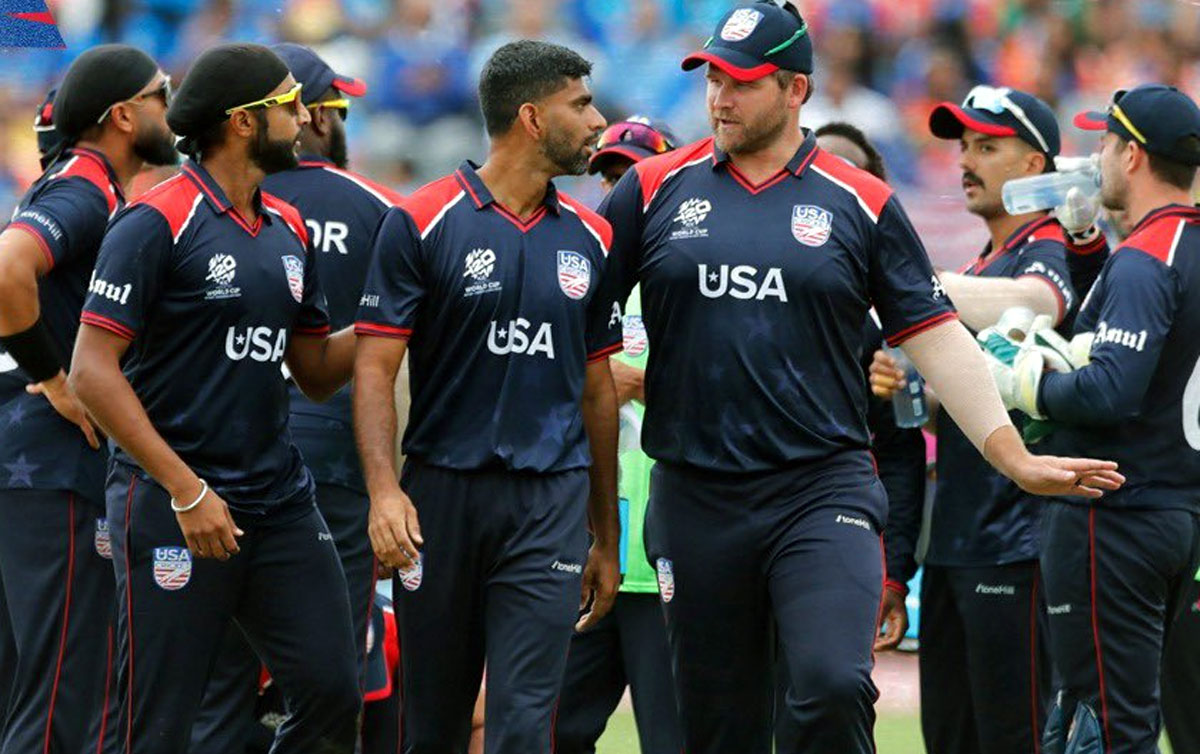The US needs to understand that it could potentially lose out on attracting several Netravalkars in the future if it curbs the influx of such industrious Indian immigrants, argues Vishal Menon.

The average Indian male loathes Saurabh Netravalkar. At 21, the Mumbaikar was selected to study computer engineering at the prestigious Cornell University in the United States.
Years later, he joined Oracle as a software engineer in California.
Netravalkar's accomplishments do not end here. He is an international cricketer who won a crucial T20 World Cup game in the Super Over against Pakistan, plays the ukulele like a pro, and is an accomplished singer with a mellifluous, honey-dipped voice.
If he sets his mind to it, he could ace the Scripps National Spelling Bee competition as well.
Indeed, Netravalkar is the guy every girl would like to introduce to her parents.
The Cornell-educated-turned-software engineer-turned-international cricketer is part of the growing tribe of Indian immigrants who have made the US their home through talent, grit, and hard work.
Netravalkar is among the scores of Indians settled in the US on an H-1B visa.
The H-1B visa is a non-immigrant visa that typically allows US companies to employ foreign workers in speciality occupations that require theoretical or technical expertise.
They are essentially America's white-collar coolies.

Netravalkar secured an H-1B visa based on the fact that he is a software engineer.
Given his multifaceted nature, he has now excelled in another domain -- cricket.
Over time, there have been several stereotypes attached to Indians in the US.
They are known as the techies from Silicon Valley, or that random dude who runs the mom-and-pop store in the locality.
Contrary to popular belief, Indian immigration to the US did not begin after the tech boom in the 1970s and 1980s.
The earliest arrivals were Punjabis, Gujaratis, and Telugus who arrived in clusters at the turn of the 20th century.
The liberalisation of the US immigration law in the 1960s attracted skilled Indian professionals in droves.
In the utterly compelling book, The Other One Percent: Indians in America, authors Sanjoy Chakravorty, Devesh Kapur and Nirvikar Singh write that a majority of Pakistani and Bangladeshi immigrants in the US today identify themselves as Indians because it has made their lives 'much easier'.
'That is, they were born in Bangladesh or Pakistan, but identified themselves as Indians by race (even when the census allowed them to identify themselves as Bangladeshi or Pakistani by race),' the authors say.
'Interestingly, most of these people were born after the Independence of India and Pakistan, and the Partition in 1947,' they write.
According to a report by the US Immigration and Citizenship Services in January this year, of the 440,000 H-1B applications that were approved in 2022, nearly 73 per cent (320,000) were Indians.
There are other reasons why so many Indians bag the H-1B visa every year.
Their technical expertise, English language skills, ability to seamlessly integrate with the local population, and diverse array of talents in other domains, make them an ideal fit.
Netravalkar's spectacular career trajectory is a case in point. But it could change.

The US government is planning a rule tweak that would significantly increase costs of companies hiring foreign tech workers on H-1B and L-1 visas.
This proposal by the Department of Homeland Security and the US Customs and Border Protection, if passed by the Senate, would require employers to pay an additional fee when extending the visas of these workers, on top of the fees already paid for the initial applications.
Capping the H-1B visa goes against the ethos of what the US stands for -- a welcoming country known for attracting talent and fostering innovation.
These curbs notwithstanding, a sizeable portion of the economically sound second and third-generation Indian Americans may not have the same attachment to their homeland as their fathers and grandfathers.
In the future, they could integrate with the American mainstream, so much so that the notions of identity crisis that their previous generations have grappled with may become a thing of the past.
Nevertheless, the US needs to understand that it could potentially lose out on attracting several Netravalkars in the future if it curbs the influx of such industrious Indian immigrants.
Feature Presentation: Aslam Hunani/Rediff.com









